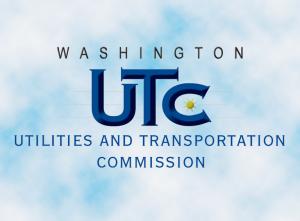Washington Permits Microsoft to Procure Supply on Its Own

The Washington Utilities and Transportation Commission has signed off on a proposed settlement under which Microsoft Corporation will no longer be required to obtain its generation supply through its serving electric utility, Puget Sound Energy (PSE). Instead, in comportment with its own intracorporate sustainability and clean energy goals, Microsoft will be able to purchase its electric power directly on the wholesale market or build generation facilities of its own. However, as set forth in the stipulation, any such supply acquisition or construction project can only involve renewable or other carbon-free energy resources.
According to Microsoft, the agreement it reached with PSE will help facilitate achievement of the company's stated commitment to clean energy technologies, "carbon neutrality," and appropriate environmental stewardship. In accepting the proffered settlement, the commission said that the terms also reflect the state's own energy policies and objectives in promoting renewable energy and moving toward a clean fuel economy.
The software company told the commission that it is dedicated to eventually assuring that 100% of its electricity needs are met through green, carbon emission-free technologies. To that end, it sought to distance itself from PSE's primary source of electric generation, which historically has been coal and natural gas. According to the record, approximately 60% of the electricity sold by the utility in 2015 came from such fossil fuels.
Although the utility has been considering retiring its Colstrip coal-fired generating station in Montana, which represents a significant portion of PSE's generation portfolio, Microsoft indicated that it did not want to wait to see if such decommissioning does, in fact, occur. Rather, the company said, it wanted to pursue renewable energy opportunities as soon as possible and on its own.
The utility had actually paved the way for such a move when it filed a tariff last fall under which large industrial and commercial customers could move to a different rate plan that would enable them to secure their power supplies from providers other than PSE. In essence, the new tariff would move eligible customers from retail generation rate plans to a retail wheeling rate schedule instead. The utility noted that Microsoft is by far its single largest customer.
Although the new tariff provides for qualifying large customers to leave PSE's generation service, several vital conditions are attached to such exits. Among the most important of those terms is the payment of an exit or "transition" fee by the departing customer. That fee is designed to compensate the utility (and its remaining ratepayers) for the so-called "stranded costs" of generation capacity that will no longer be needed for serving the customer that has left the utility's system.
In the case of Microsoft and PSE, the parties agreed that the fee to be paid by Microsoft would be $23.685 million. Under the settlement, the utility is to return that money to its other customers over a one-year period via its power cost adjustment clause. However, the stipulation also states that, such payment notwithstanding, Microsoft will continue to be obligated to contribute toward two other utility programs, one that promotes conservation and energy efficiency and one that helps underwrite low-income assistance plans.
The commission viewed those ongoing obligations as properly advancing Washington's public policy goals, which include protection and improvement of environmental quality within the state. The commission observed as well that the obligations are consistent with state legislative agendas, which have actively encouraged greater energy-efficiency service offerings, in recognition that enhanced efficiency measures can be especially important for lower-income consumers, for whom energy bills often account for a disproportionately large share of their total financial resources.
The commission reported that the stipulation requires Microsoft to meet its electricity needs through a minimum of 25% renewably sourced generation through 2020. After that, the amount jumps to at least 40% from eligible green energy resources. The settlement explicitly references hydropower as an acceptable renewable resource.
Despite its generally favorable response to the Microsoft/PSE settlement, the commission voiced some concern about an issue that was not addressed by the signatory parties, that being the extent to which Microsoft would be liable for any future decommissioning costs associated with the closure of the Colstrip plant. Indeed, one commissioner, Jay M. Balasbas, wrote in a separate statement that he thought approval of the settlement should have been contingent on Microsoft's express, unequivocal acknowledgement that it would bear some responsibility for the costs of shutting down the Colstrip facility. In the commissioner's view, the absence of such language from the final agreement could offer grounds for Microsoft to argue in the future that it owes nothing toward Colstrip closure and remediation costs.
But the commission's two other members, Chairman David W. Danner and Commissioner Ann E. Rendahl, released a statement of their own in which they contended that such a condition was unnecessary in Microsoft's case. They elaborated that given the software company's longtime status as a PSE customer, Microsoft would be liable for its fair share of Colstrip decommissioning costs simply as a matter of law.
They said that while they may have preferred that Microsoft concede such responsibility as a term of the settlement, such up-front recognition is not a "prerequisite" to establishing the company's obligation and therefore should not hold up approval of the stipulation. Washington Utilities & Transportation Commission v. Puget Sound Energy, Docket UE- 161123, Order 06, July 13, 2017 (Wash.U.T.C.).



